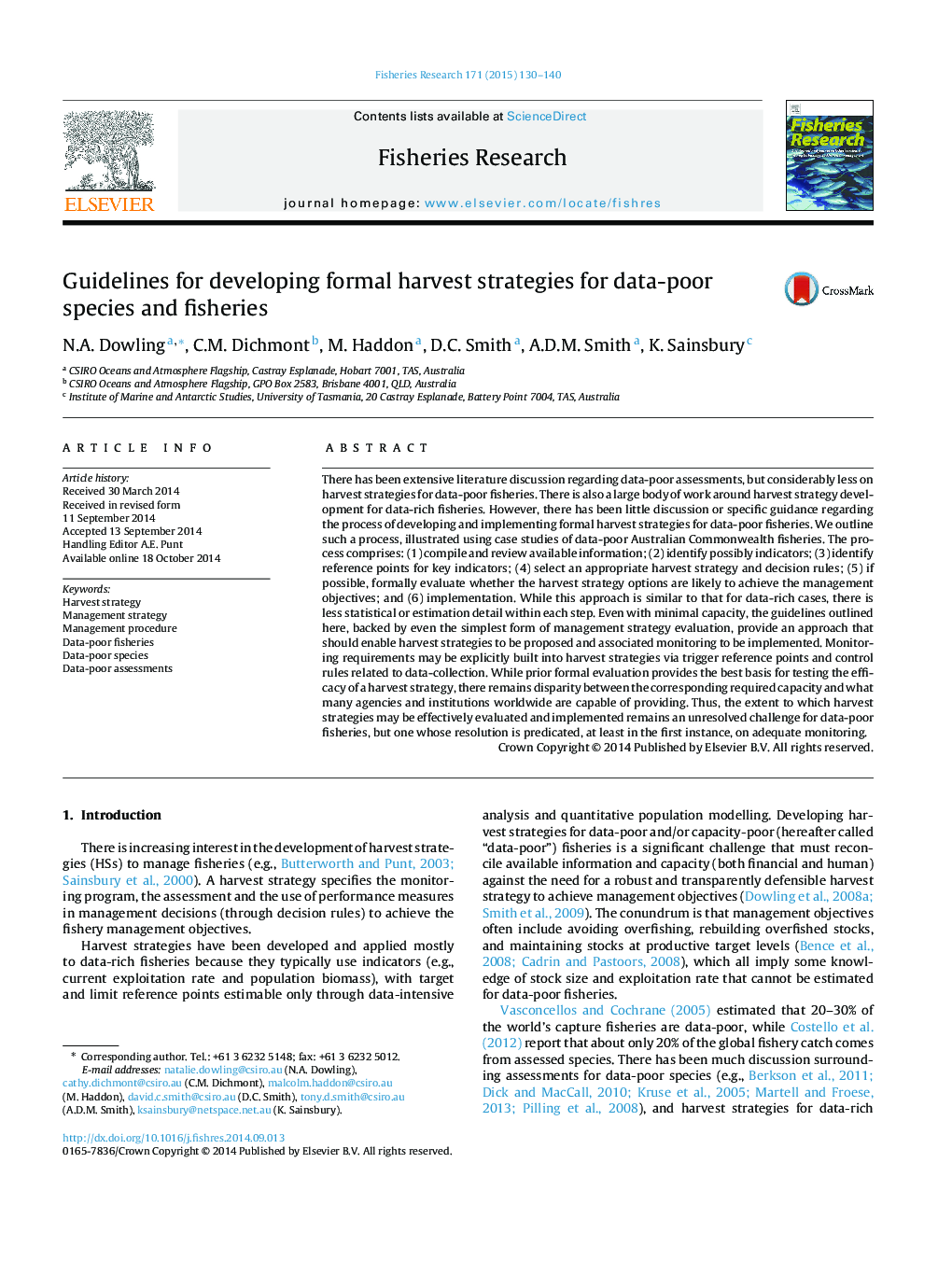| کد مقاله | کد نشریه | سال انتشار | مقاله انگلیسی | نسخه تمام متن |
|---|---|---|---|---|
| 4542777 | 1626797 | 2015 | 11 صفحه PDF | دانلود رایگان |
• Harvest strategies can be developed even when information and/or capacity is limited.
• Data-rich harvest strategy principles can be applied to simpler, empirical approaches.
• We outline a stepwise approach to developing data-poor harvest strategies.
• Effective harvest strategy evaluation/implementation depends on adequate monitoring.
• Monitoring may be addressed via triggers/control rules invoking data-collection.
There has been extensive literature discussion regarding data-poor assessments, but considerably less on harvest strategies for data-poor fisheries. There is also a large body of work around harvest strategy development for data-rich fisheries. However, there has been little discussion or specific guidance regarding the process of developing and implementing formal harvest strategies for data-poor fisheries. We outline such a process, illustrated using case studies of data-poor Australian Commonwealth fisheries. The process comprises: (1) compile and review available information; (2) identify possibly indicators; (3) identify reference points for key indicators; (4) select an appropriate harvest strategy and decision rules; (5) if possible, formally evaluate whether the harvest strategy options are likely to achieve the management objectives; and (6) implementation. While this approach is similar to that for data-rich cases, there is less statistical or estimation detail within each step. Even with minimal capacity, the guidelines outlined here, backed by even the simplest form of management strategy evaluation, provide an approach that should enable harvest strategies to be proposed and associated monitoring to be implemented. Monitoring requirements may be explicitly built into harvest strategies via trigger reference points and control rules related to data-collection. While prior formal evaluation provides the best basis for testing the efficacy of a harvest strategy, there remains disparity between the corresponding required capacity and what many agencies and institutions worldwide are capable of providing. Thus, the extent to which harvest strategies may be effectively evaluated and implemented remains an unresolved challenge for data-poor fisheries, but one whose resolution is predicated, at least in the first instance, on adequate monitoring.
Journal: Fisheries Research - Volume 171, November 2015, Pages 130–140
